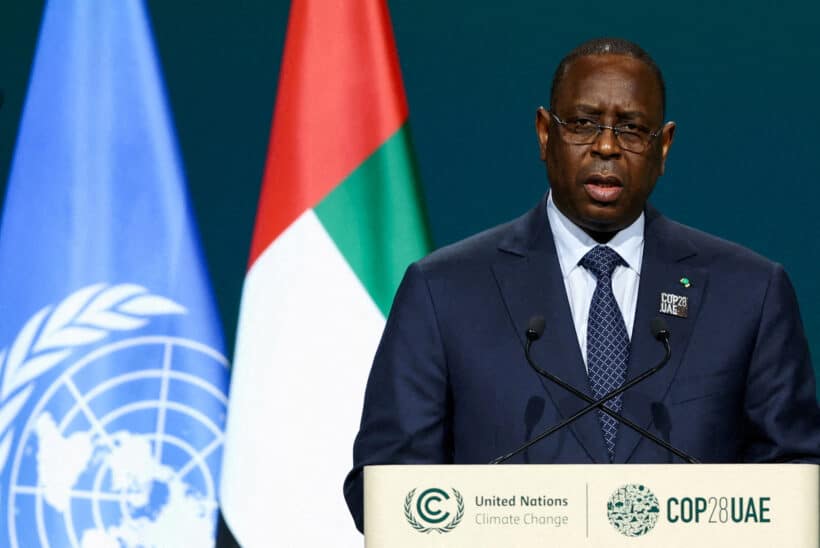
DAKAR, Feb 13 (Reuters) – Senegal’s communications ministry told mobile operators to suspend internet access on Tuesday, ahead of a planned silent march by activist groups, which was banned by authorities, over the abrupt postponement of a presidential election.
The announcement just weeks ahead of the planned Feb. 25 vote that it would be postponed, triggered violent clashes last week that resulted in the death of three young people and multiple arrests.
Parliament has voted to hold the election on Dec. 15.
The delay spurred opposition members’ concerns as it extended President Macky Sall’s mandate in an unprecedented break with Senegal’s democratic tradition.
It was unclear whether the march would take place after authorities on Monday banned it, citing logistical concerns.
The civil society and religious groups that called the demonstration will hold a press conference later on Tuesday to announce next steps, spokesman Amadou Samb told Reuters.
The vote’s postponement dismayed many in Senegal, one of West Africa’s more stable democracies, in a region where military takeovers and constitutional manoeuvring have forced democracy into retreat in many countries in recent years.
In a statement, the ministry blamed hateful online messages for the deaths and material damage incurred during the recent demonstrations.
In the capital Dakar, police in riot gear on Friday fired tear gas, stun grenades and what appeared to be rubber bullets at protesters who were burning tyres and throwing stones, a Reuters reporter said.
Amnesty International and the U.N. human rights office called on the Senegalese government to investigate the killings and police brutality against protesters.
At least 266 people have been arrested across the country, including journalists, spokesperson for the U.N. High Commissioner for Human Rights Liz Throssell said.
West Africa’s regional bloc ECOWAS on Monday sent a parliamentary diplomatic mission to Senegal to discuss the political situation in the country.
(Reporting by Bate Felix, Alessandra Prentice, Emma Farge and Portia Crowe; Writing by Anait Miridzhanian; Editing by Bernadette Baum)

